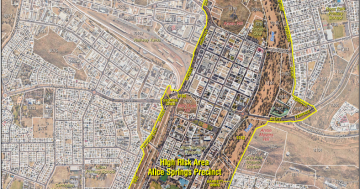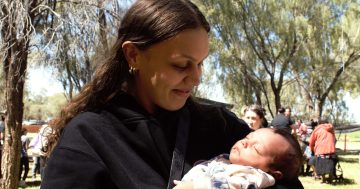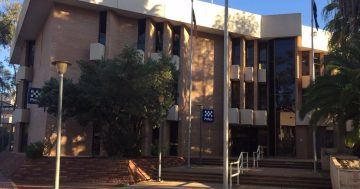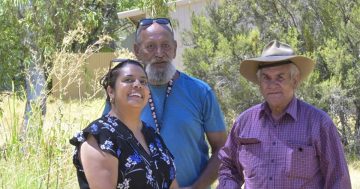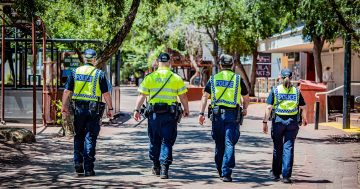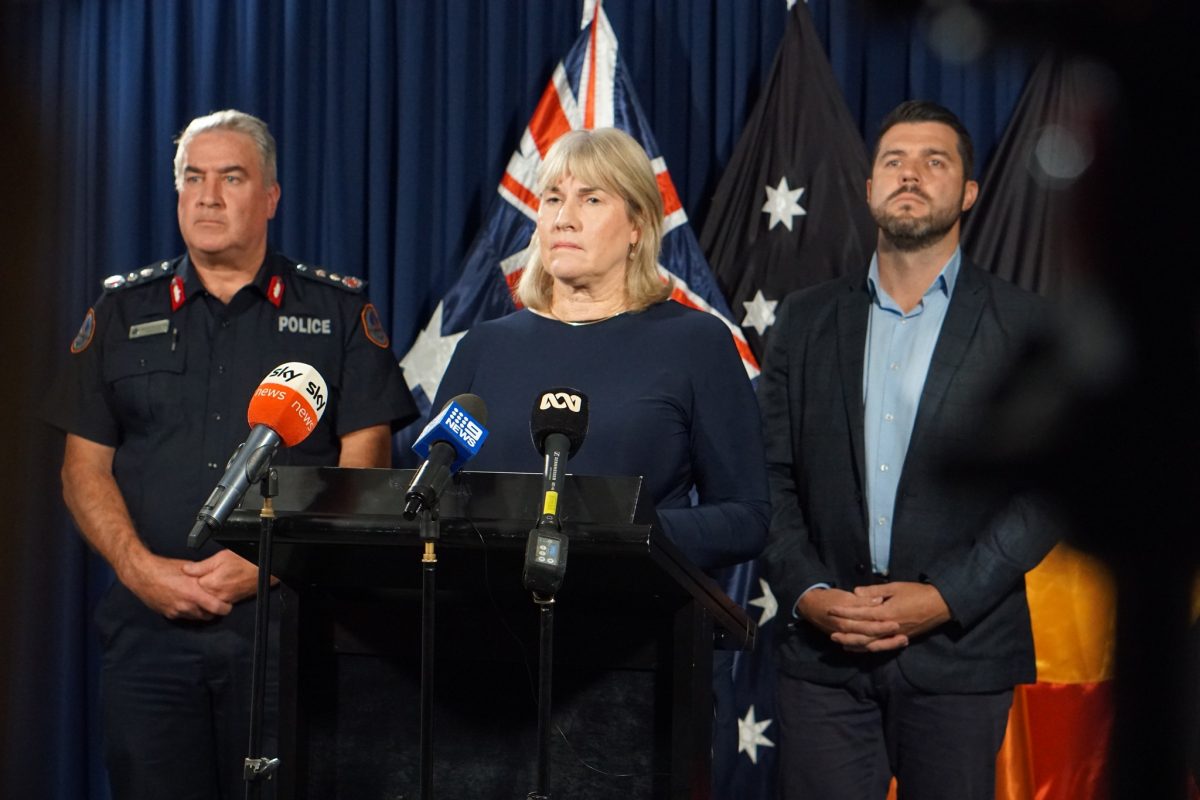
The Chief Minister thanked police officers who were part of the youth curfew and said their efforts had made a significant difference. Photo: Eva Lawler MLA/Facebook.
The Northern Territory Government extended the Alice Springs youth curfew until the end of the school holidays, as it released its response to the NT Police review and introduced a new infrastructure program.
At 6 am this Tuesday (16 April), the police-enforced lockdown preventing under-18-year-olds from being in the city’s CBD past 6 pm without a valid reason will cease. The Territory’s Emergency Management Committee advised the government to do so, but will continue monitoring the situation on the ground in Alice Springs’ designated ”High-Risk Area”.
Chief Minister Eva Lawler said the curfew was proving to be a circuit-breaker measure, so it was important not to lose its momentum.
“Work is being done right now to ensure that the community is prepared for when the curfew ends, and we continue to have a strong presence from police, Territory Families and the Department of Education,” said the Member for Drysdale.
The North Australian Aboriginal Justice Agency (NAAJA) and the Human Rights Law Centre (HRLC) criticised the extension, claiming it would disproportionately impact First Nations children and their families. Both organisations said the curfew risked the needless harm of contact with police, and did nothing to address the underlying issues it was attempting to resolve.
They alleged overpolicing of Aboriginal and Torres Strait Islander people had led to their severe overrepresentation in the Top End’s criminal justice system, which successive governments had failed to address.
Indigenous children made up 42 per cent of the Territory’s general population from 2022-2023, but represent 94 per cent of youth prisons.
NAAJA principal legal officer Jared Sharp believes extending the curfew is not a productive way forward.
“As we said previously, the Northern Territory is facing significant challenges when it comes to crime and offending and we need evidence-based solutions with an eye on the longer term – intensive support programs, diversion, education, and related services – not knee-jerk reactions and Band-Aid policies,” he said.
On the same day of the curfew extension (9 April), Chief Minister Lawler released the Territory Government’s response to its major policing review – accepting 15 of the 18 key recommendations.
Led by former NT Police Association president Vince Kelly, the review calls for extensive investment into the force over coming years and reforms to its organisational structure.
The government did not accept the recommendation to reduce Police Auxiliary Liquor Inspector (PALI) coverage on bottle shops, a core issue the Country Liberal Party has demanded more of. It also rejected the review’s advice to discontinue the use of private security services for reducing anti-social behaviour, but did note without accepting the recommendation to use private companies for transporting prisoners.
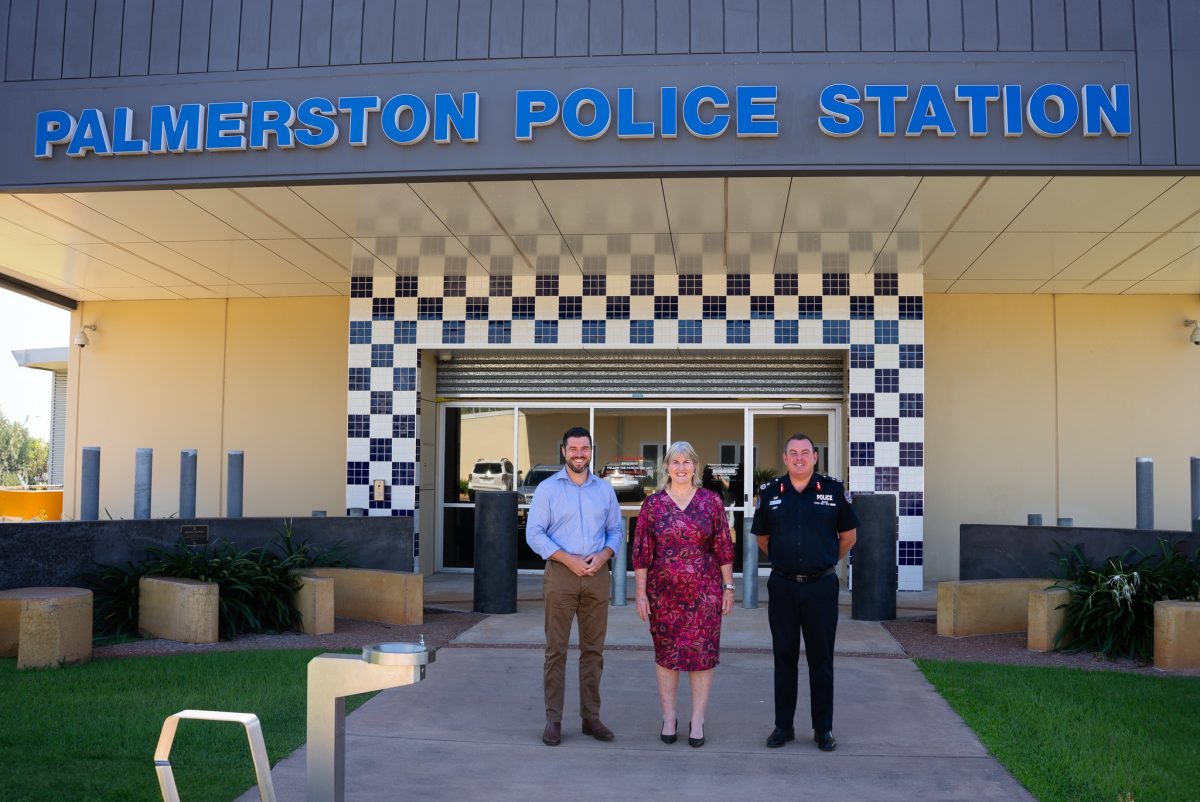
The Chief Minister met officers at the Palmerston Police Station, which was built through a $30 million-plus government investment. It has its own watch house and more than 200 officers use the facility. Photo: Eva Lawler MLA.
Following the review, a $125 million police infrastructure program was announced to provide the force with new and upgraded enforcement facilities. The government said it would invest $25 million into the program for each of the next five years, focusing on police stations, watch houses and housing.
Among the planned projects are an $11.5 million watch house in Tennant Creek and a $19 million Peppimenarti Police complex. It comes after the government provided funding for an extra 200 police officers, upgraded communication technology and secured the long-term future of its Territory Safety Division (TSD).
Overall, the 2024 budget will invest another $570 million over five years to implement the police review’s accepted recommendations and fully establish the TSD.


